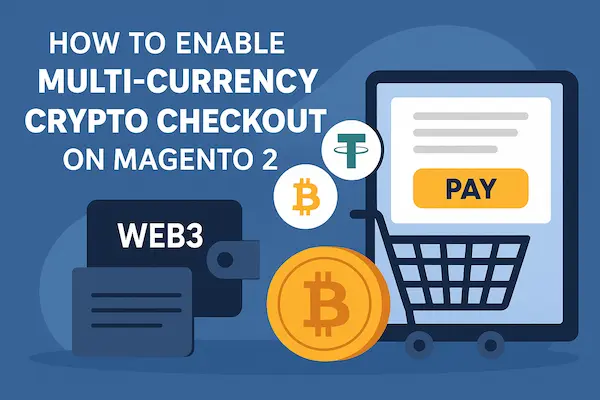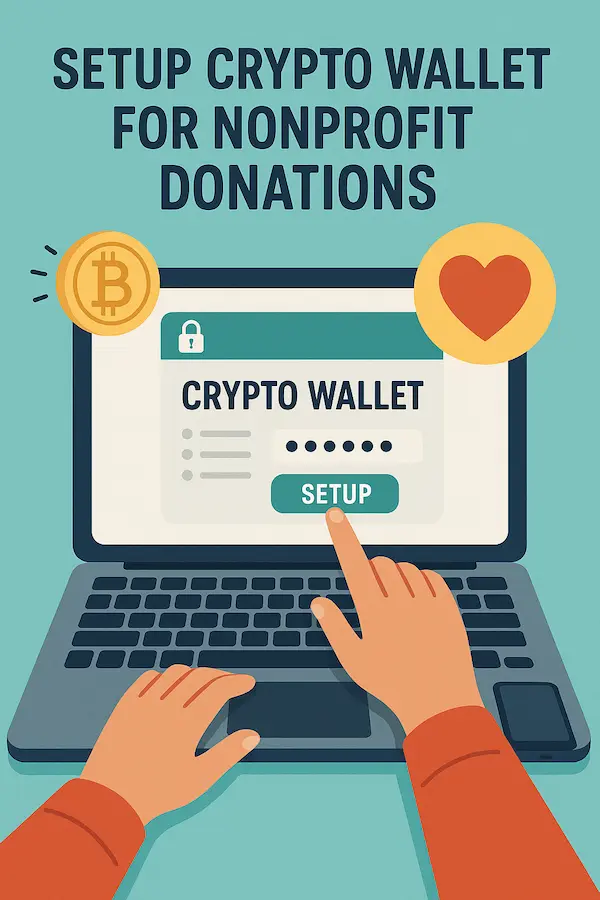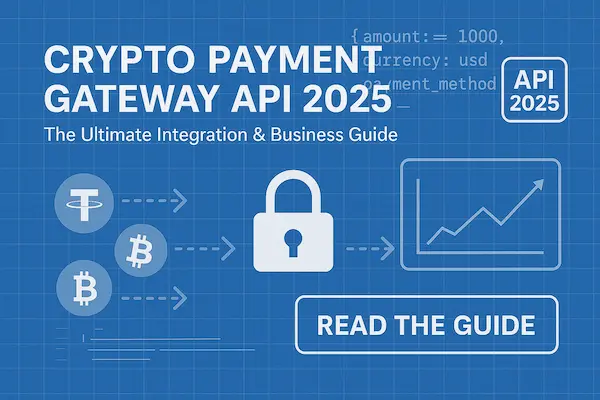The principles of trust minimization, decentralization, and transparency are the building blocks of the digital asset world. For those who care about cryptocurrency, the choice of wallets is the most important decision. The phrase ‘open source’ is often associated with the best security practices. But, what is an open source crypto wallet? This guide is going to examine the technology, security, and practicality of an open source crypto wallet for the year 2026. This is the best self-custody option available. It provides truly auditable self-custody and control of your digital assets.
Contents
- 1 Defining the Core Concept: What Is an Open Source Crypto Wallet?
- 2 The Paramount Security Advantages of Open Source
- 3 Technical Deep Dive: How an Open Source Crypto Wallet Works
- 4 Types of Open Source Crypto Wallets in 2026
- 5 Potential Disadvantages and Common Misconceptions
- 6 How To Verify: Checking If A Crypto Wallet Is Really Open Source
Defining the Core Concept: What Is an Open Source Crypto Wallet?
To fully appreciate the significance of this technology, we must first establish a clear definition. Simply put, what is an open source crypto wallet? It is a piece of software (or firmware, in the case of hardware devices) where the underlying source code is publicly accessible and can be inspected, modified, and distributed by anyone. This means there are no proprietary secrets hidden within the code that manages your private keys. The code that encrypts, decrypts, and broadcasts transactions is available for scrutiny by the entire global development community.

The crucial difference between open source and proprietary wallets
In order to understand the value of this technology, we need to establish a concrete definition first. What is an open source crypto wallet? It is a software (or firmware in case of hardware devices) with an openly available source code that can be reviewed, altered, and distributed by anyone. In this case, there is no proprietary information hiding in the code that looks after your private keys. The code that encrypts and decrypts private keys, and transmits the transactions is open for scrutiny by the entire world.
The philosophy behind open transparency in cryptocurrency
Transparency is the foundation of the blockchain network. Every transaction gets recorded in the public ledger and creates an immutable record. For the tools that users interact with the blockchain network, it makes sense and is necessary for them to be secure. When users ask, ‘What is an open source crypto wallet?’, they essentially ask, ‘Can I check that this tool is not pilfering my funds?’ Open source gives an emphatic ‘Yes!’; users can check the tool as the complete code is provided for assessment. This uncompromising transparency is the reason why crypto veterans prefer open source wallets.
Code availability as trust equivalence
Code availability is not just for developers. Even if you, the end user, cannot personally read C++ or Python, the fact that the code is on a platform like GitHub means that security auditors, journalists, and ethical hackers can examine it. This collective scrutiny creates an inherent disincentive for malicious developers to include harmful code, reinforcing the safety of an open-source crypto wallet.
The Paramount Security Advantages of Open Source
The primary reason why people should switch to open source crypto wallets is because of the security it brings. When it comes to crypto wallets, the security of private keys is the highest priority. Therefore, it is crucial to eliminate single points of failure, as well as, hidden risks.

Everyone has the opportunity to participate in the community auditing and peer reviews
This is probably the most important security feature. For a closed system the security of the system is determined by a small, paid, internal team. The security of an open source crypto wallet system is, however, supported by “millions of eyes” looking for security flaws. This worldwide system works 24-7 and is result oriented. They will identify and resolve bugs significantly faster than in closed systems, and those bugs will be more critical as well. The open source community will always be looking for flaws in your system.
Why security through obscurity fails in the crypto space
It is often argued by the developers of closed source wallets that by hiding the code you can make it more difficult for hackers to find exploits. Cryptography fundamentally refuses the “security by obscurity” method. Secure “time and proven” algorithms that would withstand the scrutiny of the entire world is the essence of true security. The question of what is an open source crypto wallet, in essence, breaks the “secrecy equals safety” paradigm and replaces it with trust that can be verified.
Eliminating backdoors and hidden vulnerabilities
For any crypto user, the ultimate risk will true backdoor control your private keys. With a closed-source wallet, you have no way to confirm that a backdoor does or does not exist. An open source crypto wallet makes it very difficult for the developers to insert a malicious function that will not be caught by a community auditor. The transparency acts as a deterrent to internal malice.
Technical Deep Dive: How an Open Source Crypto Wallet Works
Grasping the technical aspects clarifies why an open source crypto wallet is best for self-custody. It ties directly into how the software is put together and how it is deployed.

Deterministic builds and verifiable binaries
For the most security-conscious users, the concept of a deterministic build is critical. A third-party will take the publicly accessible source code and compile it, yielding an application binary that is the same as the one that the wallet provide has distributed. If the binary matches the one created from the public source code, the user is mathematically certain that the publicly audited code is exactly what they are running. This is the key to fully trusting an open source crypto wallet.
Generating a private key and how a wallet’s seed phrase is protected
Each open source crypto wallet must account for how it privately generates your keys and what seed phrase (or recovery phrase) the wallet generates. The code proves that generation is based on true randomness and that generation uses sound cryptographic principles like the BIP39 standard. This clarity allows the user to understand that their keys will never be stashed in a wallet or sent to a third party and leaves no room for compromise. If you answer the question, what is an open source crypto wallet, you must be able to verify the key generation.
How the public ledger interacts with your open source wallet
The open source crypto wallet is your personal interface to the blockchain. It is your public key (your wallet address) that you use to check the balance on the ledger and your private key that you use to sign (authorize) a transaction. Since the signing code is open source, you can see the exact algorithms that were used and that the transaction is only signed on your device before being sent to the network.
Types of Open Source Crypto Wallets in 2026
The term what is an open source crypto wallet applies to various formats, each offering different levels of convenience and security.
Open source hardware wallets: the gold standard (e.g., trezor)
Hardware wallets are physical devices, often resembling a USB stick, that store your private keys completely offline (cold storage). To ensure optimal security, the firmware-the software running on the device- must be open source. Devices like Trezor have built their reputation on fully auditable, open source code, making them the most trusted choice for long-term storage. When paired with a reputable software interface, this combination provides an unbeatable security model.

Read more: What If Crypto To Fiat Payment Gateway Is The Best Method In The Next 2 Years?
Verifiable firmware and secure element controversy
In pursuing security through fully open source firmware, Trezor opts for a dissimilar path relative to certain competing hardware wallets that utilize a “Secure Element” (SE) chip that may be running closed source and proprietary code. Open source advocates are critical of SEs because they introduce a blindspot; there is no way to ascertain what the SE is doing with the user’s keys. For a purist open source perspective, the ideal embodiment of fully closed source system would entail having seamlessly verifiable code from the application to the hardware’s chip firmware.
Open source software wallets (desktop and mobile)
Open source software wallets that are installed on desktops and mobile devices are often referred to as hot wallets. Such wallets are connected to the internet. Examples are Exodus and Electrum (the open source nature of certain hot wallets and the complexity surrounding it, is such that they may only have some components that are open source). When examining what is an open source crypto wallet is in the hot wallets, ensure that critical key management components are public.
The role of Xaigate in promoting transparent wallet practices
Trust only comes with time, something that we understand here at Xaigate. While most of our business activities consist of providing secure enterprise-level payment solutions, we are still advocates for the security principles of open source technology. All tools that interact with decentralized assets should incorporate undeniable security. We advocate the use of open source development in the Aegis of development to wallet security and to protect the crypto ecosystem at large.
Potential Disadvantages and Common Misconceptions
When considering the benefits an open source crypto wallet has to offer, one must recognize the defensible challenges and the relevant misunderstandings these wallet offer.

Read more: Payment Gateway for Crypto Exchange: #1 Optimal Solution for Modern Businesses
Risk of imitation and phishing scams
An open source wallet may have the downside of phishing imitation. To illustrate, a scam wallet and malicious wallet could be a copy of the open source wallet code, making small, dangerous edits such as a backdoor, and presenting it as a legitimate wallet to users. Plexos wallets all come with OVH signatures. To avoid phishing scams users must always download wallets from the official site, must cross check developer signatures, and if possible, deterministically check that the binary is constructed from the wallet’s public code.
Evaluating community support versus corporate support
A closed source wallet offers customer support that is professional and around the clock. A community driven open source crypto wallet may depend more on community forums and the work of volunteers on troubleshooting. While the community support is great and very smart, it may not provide the consistent, systematic help desk experience that less technical users may want. This is the trade off between user convenience and complete security.
How To Verify: Checking If A Crypto Wallet Is Really Open Source
You shouldn’t take wallets at their word if they say they are open source. Here is how to go about validating that claim when asking what is an open source crypto wallet.
Inspecting the source code repository (Github)
First, try to find the wallet’s source code, which is typically stored in a public repository such as Github. Here are some things to look for:
- Activity: Is the repository in active maintenance? Are there new commits?
- Forks and Stars: A large number of forks and stars is a sign of considerable community interest and some level of code review.
- Critical Components: Check that the public code includes the critical elements of key management and transaction signing, and not just the user interface.

Reviewing the license and community activity
Truly open source work will disclose a recognized open source license (MIT, GPL, Apache 2.0). If the license suggests limitations on viewing, alteration, and distribution then it is not open source and as such will not claim that. Finally, community activity regarding the code (issues and pull requests) is also a strong indicator. A meaningful discussion on code alteration is strong evidence that the wallet is receiving the scrutiny it claims.
The Future of Self-Custody: Why Open Source Is the Default Choice
Here’s why shifting from “why use an open source crypto wallet?” to “why use anything else?” is inevitable: As the crypto market deeply integrates with traditional finance, the value of open source code becomes indisputable. The personal, verifiable, and communal resilient layers of security it provides code fosters the loyalty of the crypto community. For individuals, the businesses, and the regulatory landscape, minimizing trust in third parties is the ultimate goal. It will always be the case with open source solutions.
Making an informed decision with an open source crypto wallet
Your crypto wallet selection will dictate the crypto security posture you will adopt. Deposit open source crypto wallets policies and you choose obscurity. Selecting an open source crypto wallet is the commitment to security, and transparency. It rightfully places the assurance of the funds in your hands. Open source solution will always be the case with trustless systems. For peace of mind and long-term asset security in 2026, the open source wallet model is unequivocally the safest choice.
Follow XAIGATE’s blog for daily updates!
We’re also on X (@mxaigate), GitHub and Linkedin! Follow us!









